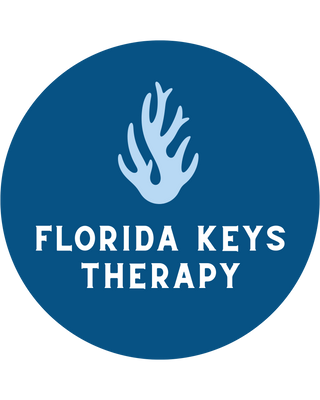Finding the Right North Carolina Therapist for Your Mental Health Journey

Why Seek a North Carolina Therapist for Your Mental Health Needs?
Mental health is a critical component of overall well-being, and seeking professional therapy can be an essential step in improving mental health. Whether you’re struggling with anxiety, depression, trauma, or stress, working with a North Carolina therapist can provide you with the necessary tools to navigate life’s challenges. A licensed therapist in North Carolina can help you gain a better understanding of your thoughts and emotions while guiding you toward long-lasting healing and growth.
If you’re considering therapy, it’s important to choose a therapist who understands your unique needs and can offer the appropriate treatment. In this article, we’ll explore the benefits of therapy, how to find a suitable North Carolina therapist, and what you can expect during the process.
The Benefits of Therapy with a North Carolina Therapist
Therapy can provide many benefits, including emotional support, guidance, and skills that can help you cope with life’s challenges. If you’re on the fence about seeking therapy, here are some compelling reasons to consider working with a North Carolina therapist.
1. Expert Guidance for Mental Health Conditions
A North Carolina therapist can provide professional help for a variety of mental health issues, including anxiety, depression, trauma, and grief. By using evidence-based treatment methods, such as Cognitive Behavioral Therapy (CBT) or Dialectical Behavioral Therapy (DBT), a therapist can help you understand your mental health conditions and develop coping strategies to manage symptoms.
These therapies aim to change negative thinking patterns and behaviors, ultimately leading to emotional healing and stability. With the right therapist, you can find relief from symptoms and learn how to lead a more balanced and fulfilling life.
2. Safe and Supportive Environment
Therapy offers a confidential and safe space for individuals to express their emotions without fear of judgment. Whether you’re facing personal struggles, family issues, or workplace stress, a North Carolina therapist can provide the support you need to work through your difficulties. A strong therapeutic relationship based on trust and empathy is essential for successful therapy outcomes.
Knowing that you have a safe environment to talk freely can help reduce feelings of isolation, and give you the courage to address issues that may have been weighing on your mind.
3. Personal Growth and Self-Awareness
Therapy is not just about treating mental health conditions—it’s also about fostering personal growth. Working with a North Carolina therapist can provide you with the opportunity to gain a deeper understanding of your emotions, behavior patterns, and thought processes. As you explore these aspects of yourself, you’ll develop a better sense of self-awareness, which can lead to healthier decision-making and life choices.
Therapy also helps you identify unhealthy coping mechanisms and replace them with positive strategies that contribute to long-term mental well-being.
4. Improved Relationships
Whether it’s family dynamics, romantic relationships, or friendships, therapy can significantly improve your relationships with others. A North Carolina therapist can help you understand communication barriers, manage conflicts, and establish healthier ways to relate to others. Couples therapy, family therapy, or individual counseling can be particularly useful for working through relationship challenges and building stronger connections.
How to Choose the Right North Carolina Therapist
Choosing the right therapist is an important part of the therapy process. Finding a North Carolina therapist who understands your unique needs and is compatible with your goals can make a significant difference in the success of your therapy. Here are some factors to consider when selecting a therapist:
1. Determine Your Therapy Goals
The first step in choosing the right therapist is to determine what you hope to achieve through therapy. Are you seeking help for anxiety, depression, or trauma? Do you need assistance with relationship issues or life transitions? Understanding your goals can help you narrow down your search and find a therapist who specializes in those areas.
For example, if you are struggling with trauma, look for a therapist trained in trauma-focused therapy such as EMDR (Eye Movement Desensitization and Reprocessing) or somatic therapy. If you’re looking to improve your relationship, a couples therapist may be more suitable.
2. Check Qualifications and Licensing
When looking for a North Carolina therapist, it’s important to ensure they are licensed and qualified to provide therapy services. Therapists in North Carolina may hold different credentials, such as:
- Licensed Professional Counselor (LPC)
- Licensed Clinical Social Worker (LCSW)
- Licensed Marriage and Family Therapist (LMFT)
- Licensed Psychologist (Ph.D. or Psy.D.)
You can check the therapist’s credentials and ensure they are in good standing with the North Carolina Board of Licensed Professional Counselors, the North Carolina Social Work Certification and Licensure Board, or the North Carolina Board of Psychology.
3. Therapist Specializations and Approaches
Different therapists specialize in various therapeutic approaches, such as Cognitive Behavioral Therapy (CBT), mindfulness-based therapy, or psychodynamic therapy. It’s important to find a North Carolina therapist whose specialization aligns with your specific needs. For instance, if you’re seeking help for stress management, mindfulness-based therapy may be a good fit. On the other hand, if you have experienced trauma, trauma-informed care may be the best approach.
Understanding the therapist’s approach and ensuring it resonates with your therapy goals is crucial to your success.
4. Compatibility and Comfort
The most important factor in choosing a therapist is how comfortable you feel with them. Therapy is a deeply personal experience, and building a strong therapeutic relationship is key. During your first session, pay attention to whether you feel heard, respected, and understood by the therapist. You should feel comfortable enough to share your thoughts and emotions freely.
If, after a few sessions, you feel like the therapist is not the right fit, it’s okay to seek another professional. Therapy is a personal journey, and finding the right match is essential for making progress.
Types of Therapy Available with a North Carolina Therapist
Once you’ve chosen a North Carolina therapist, it’s important to understand the different types of therapy available. Different therapeutic modalities can address various issues and offer different treatment approaches. Here are some common types of therapy that a North Carolina therapist may offer:
1. Individual Therapy
Individual therapy involves one-on-one sessions with your therapist. This type of therapy allows you to work on personal issues, such as anxiety, depression, and self-esteem, in a private and confidential setting. Individual therapy is often the most effective for personal growth and emotional healing.
2. Couples Therapy
Couples therapy is designed for partners who are experiencing relationship difficulties. Whether it’s communication issues, conflict resolution, or intimacy problems, a North Carolina therapist trained in couples counseling can help you and your partner work through these challenges. The goal of couples therapy is to improve the relationship and foster healthy communication.
3. Family Therapy
Family therapy involves working with family members to address issues that are impacting the entire family dynamic. It’s often used to resolve conflicts, improve communication, and address issues such as grief, trauma, or behavioral problems in children. A North Carolina therapist trained in family therapy can help families heal and build stronger relationships.
4. Group Therapy
Group therapy brings together a small group of individuals with similar concerns, allowing them to share experiences and support one another. Group therapy can be an effective way to address issues such as addiction, grief, or social anxiety. It’s often used alongside individual therapy to provide additional support and encouragement.
The Importance of Therapy for Long-Term Mental Wellness
Investing in therapy is an investment in your future well-being. A North Carolina therapist can help you develop coping strategies, gain emotional resilience, and achieve long-lasting mental wellness. By addressing your mental health concerns early, you can reduce the risk of more serious issues arising in the future.
Therapy not only helps you overcome challenges but also empowers you to lead a more fulfilling life. Whether you’re working through a mental health condition, improving relationships, or simply seeking personal growth, therapy offers the tools and support needed to thrive.
Conclusion: Take the First Step Toward Better Mental Health with a North Carolina Therapist
If you’re ready to make a positive change in your life, seeking help from a North Carolina therapist is an excellent first step. Whether you’re struggling with stress, anxiety, trauma, or relationships, therapy can provide you with the support you need to achieve emotional well-being.
Start your journey today by visiting The Sane Shop Mental Health Therapy. Our dedicated and experienced therapists are here to help you take the first step toward a happier, healthier life.






